Cheetah Chrome - Interview
by John Clarkson
published: 9 / 7 / 2014
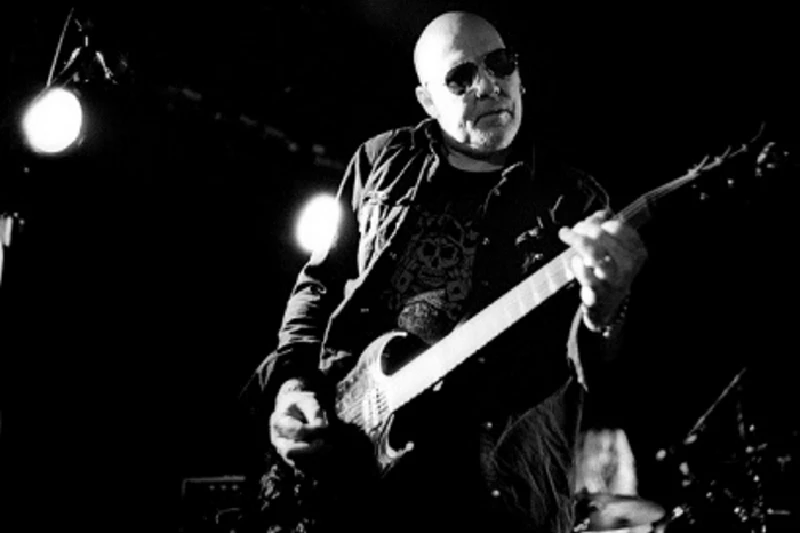
intro
John Clarkson speaks to punk guitarist Cheetah Chrome about his bands Rocket from the Tombs and the Dead Boys, and 'Solo', his new mini-album and debut solo release
Cheetah Chrome is a Cleveland-born punk and rock and roll guitarist, and was one of the members of Rocket from the Tombs and the co-founder of the Dead Boys. After playing with local covers bands, Chrome, whose real name is Eugene O’Connor, joined Rocket from the Tombs in 1974, which also featured David Thomas on vocals and the late Peter Laughner on guitar. Rocket from the Tombs lasted less than a year, recording just one demo tape, before they split up in acrimony in 1975. Thomas and Laughner, who died in 1977 at the age of 24, went on to form Pere Ubu, while Chrome formed the Dead Boys with Rocket from the Tombs drummer Johnny Blitz and vocalist Stiv Bators. The Dead Boys moved shortly afterwards to New York, where they became part of the punk scene that was gravitating around Hilly Kristal’s Bowery club CBGB. They became renowned for their lewd trouser-dropping antics and Stiv Bators’ wild stage behaviour which saw him slash himself with his microphone on several occasions. They recorded two albums, ‘Young, Loud and Snotty’ (1977) and ‘We Have Come for Your Children’ (1978) before splitting up in 1979. While the Dead Boys would get back together occasionally over the years until Bators’ death after he was knocked over by a taxi in Paris in 1990, interest had also started to increase in Rockets from the Tombs, partially as a result of the publication in 1993 of Clinton Heylin’s book ‘From the Velvets to the Voidoids’ on American punk. Rocket from the Tombs’ intense, dirge-like music and Thomas’s apocalyptic lyrics found a new audience, with the demo tape being bootlegged many times over before finally being officially released in 2002 by Smog Veil Records in America and Glitterhouse in Europe under the title of ‘The Day the Earth Met the Rocket from the Tombs’. Rocket from the Tombs reformed the following year, and recorded ’Rocket Redux’ in 2004, a studio album of their old songs, with former Television guitarist Richard Lloyd taking Peter Laughner’s place. They have since then recorded in 2011 ‘Barfly’, another album of new material. In recent years, Chrome has published his autobiography, ‘From the Lines of Punk Rock’. He also formed Batusis with Sylvain Sylvain from the New York Dolls, which released a self-titled EP in 2010. In 2012 he became one of the directors at the record label Plowboy Records, who have just released a seven track mini-album ‘Solo’, Chrome ‘s first release under his own name. Pennyblackmusic talked to Cheetah Chrome about his long musical career, and began by asking him about his role at Plowboy Records. PB: You became the Director of Special Projects for Plowboy Records in April 2012 who put out your new EP/Mine-album ‘Solo’. What does that job entail and who else is involved in running this label? CC: We basically pick bands and record them. It is as simple as that. We started with an Eddy Arnold tribute compilation, ‘You Don’t Know Me’, and we ended up with nineteen artists for it, so I had to get in contact with all of them and get them in the studio. Since then, as we see artists or as they come to us, we decide which ones we want to work with. It is a pretty cut and dry job. It is not rocket science (Laughs). PB: Who else is involved in running this label? Is it just you? CC: The day-to-day business is mostly done by me and Shannon Powers, who is Eddy’s grandson, and we also have Don Cusack on board. He basically has the same kind of function that I do but he more country-oriented. He is less hands on than Shannon and I are. He is more an advisor. Then we have Tyler Kimbro, who is basically the assistant to both of us. PB: Did you think of putting ‘Solo’ out anywhere else? Was there any point? CC: No, I have a really built-in loathing of the music business from my experiences with the Dead Boys. There was only one record label that I really enjoyed working with which was Smog Veil Records, and they went into hiatus. When I became A & R for Plowboy, it was kind of logical to put my music out on Plowboy because I believe in the label, I believe in our artists and we can do anything that most other labels can do. PB: ‘Solo’ was recorded over two sessions, one in 1996 and one in 2012. Which songs come from the early sessions and which songs come from the latter sessions? CC: ‘Staring in the Night’, ‘No Credit’ and ‘The One That Got Away’ came from the earlier sessions, which were recorded at a studio in Woodstock. Those were produced by Genya Raven, who also produced the first Dead Boys album, ‘Young, Loud and Snotty’. Then we have got three songs, ‘East Side Story’, Nothing’ and ‘Love Song to Death’, which come from sessions here in Nashville in 2011. They were recorded with Batusis, and we ended up using them for this. ‘Sharky’ was just me and the producer Ken Coomer. We recorded that while we were mixing the Woodstock tapes. It was just something that I happened to be working on when we doing the mixes together, and the idea came up to put it on. We did it one afternoon and knocked it up (Laughs). PB: Despite the recordings on it being nearly twenty years apart, the recordings come across as very seamless. CC: Ken and I remixed all the Genya stuff. They were just rough mixes that we had, and Ken and I went ahead and we remixed them. It was all done at the same time to give it continuity and we mastered them all together. We didn’t end up changing a lot about the old tapes. We didn’t redo many of the old vocals. I think that we did one. We just put them through and mixed them basically. PB: The three songs from 1996 came from a lost solo album. Do you have plans to put out the rest of that album? CC: A couple of the songs have been released in other forms elsewhere, so we will see. There are maybe just two or three left that I would consider putting out at this time. A couple of them have lost relevance, and a couple I just don’t like anymore (Laughs). PB: It is strong material. How come this album wasn’t put out years ago? CC: Like I say, I have a deep mistrust of the music business and I just kind of sat on it, plus I had personal problems at that time. I wasn’t exactly in the shape to get a record label. PB: The latter songs were recorded with the latter line-up of Batusis. Batusis also recorded an album that has never come out. Are the songs on ‘Solo’ from that album? CC: Yes. We had done the album, and then the label that we had at that time Smog Veil went into hiatus and didn’t release it. We were really not in the mood to go around shopping an album that we already thought was fine. We got to walk away with it free and clear, so we decided to split it up and keep four ourselves the songs that we sung on. You will probably see some of the songs come out under Sylvain’s name at some point. PB: What is the situation with Batusis now? Have you broken up? CC: We discussed getting back together and doing some more shows and more recording. Our schedules just haven’t been free at the same time, but we are still in touch a lot. We would like to do something else together. PB: What is your role in Rocket from the Tombs now? You are apparently still a member of the band, but you don’t tour with them. CC: Well, the band has changed a lot. Richard Lloyd is no longer a member. I have also got kind of sick of touring. I would be happy to do a week or two here and there, but that is about it. They keep threatening to get together and to do another record, and when they do I will probably go up to Cleveland to take part in the writing and recording of that. I will probably show up for a gig or two and then play with them some songs, but that is the skin of that. I see myself as more a writer and a spiritual advisor (Laughs). PB: You started out by playing in Cleveland in the bands Slash and Sarah Blue. Who were they? Were they just local bands? CC: Yeah, Sarah Blue was an Alice Cooper covers band. We played maybe three gigs (Laughs) and Slash was basically me and Johnny Blitz and his cousin, and we played I think two gigs and died. It was an exercise of frustration for us. We wanted to do original material but it just wasn’t accepted in Cleveland, so we ended up leaning on all these other songs. PB: Cleveland had been a prosperous city once, but by the mid-1970s had fallen into decline and had become very run down. Rocket from the Tomb’s music was very bleak, and songs like ‘Down in Flames’ and ‘Life Stinks’ were nihilistic in tone. How much of an impact do you think your local environment had on your music? CC: There was definitely a vibe of despair about the place. Cleveland was dropping in population by 5% a year at the time because people were moving away elsewhere. The pollution was horrible. The air at the steel mills was bad. The river was catching on fire. It was a pretty hellish landscape in the 70s. It wasn’t a lot of fun at all. I am sure that it did effect us. At the time I thought that we were normal. I don’t remember feeling any existential angst (Laughs, but it definitely seemed to come through in our music. PB: Much has been made in Clinton Heylin’s book ‘From the Velvets to the Voidoids’ about the Cleveland underground scene of the 1970s and band like the Electric Eels, the Mirrors and yourselves .Was it a big scene or was it one in which you played to largely small audiences? CC: That book really mythologised things a lot. It made people seem a lot more important than they were in the big scheme of things. The bands played like for each other (Laughs) and then your friend. We didn’t do it often, just a few times a year, and there was only like four bands like that. There was us, Mirrors, the Electric Eels and then Tin Huey for a while. It was not a scene at all. It was basically like a barbeque with four bands hanging out (Laughs). PB: Yet, having said that, Rocket from the Tombs was together in what is defined as its classic line-up for only about nine months. It only recorded one demo tape, but it has gone on to achieve this remarkable cult status. How much of that was down the success of its members’ subsequent bands Pere Ubu and the Dead Boys or do you think that other factors were involved as well? CC: I think that it was so different that it was good, and eventually as a result of that it just lived on. It is funny because at the time the band broke up and Pere Ubu and the Dead Boys formed out of it neither one of us –David or I– were inclined to mention Rockets in interviews. It wasn’t something that we saw as a big success. We saw it as being a failure and we didn’t want it to run on into our new bands (Laughs). We were shocked when twenty years later it was still going, and all of a sudden we were deciding to do another gig because we had all this unfinished business. It was very strange for us. We were twenty-eight years apart, and we had to go through a whole process to do that. We had to clear the air, and we had huge fights to get over, to get past a bunch of old business. PB: The demo tape, ‘The Day the Earth Met the Rocket from the Tombs’, was released in 2002, the year before you back together. Was that what gave you the spark to get back together in 2003 and then go out and record ‘Rocket Redux’ in 2004? CC: I see it as more than that. I see it in in many ways as being down to Peter Laughner, even though he had been twenty-five years dead by that time. Peter was the catalyst behind the recording more than anything. Peter really believed in the do-it-yourself ethic of getting out there and recording something, and it didn’t matter if it was professional as long as it was out there and people heard it. He brought that to all of us and we all got the spirit from him. There were so many years between, and that tape got bootlegged so many times and eventually the band got together (Laughs). So, he was eventually proved right about it,. The reunion was just frustration at us being sick of being bootlegged basically (Laughs). PB: We interviewed David Thomas in 2004, and at that time Rocket from the Tombs had just released ‘Rocket Redux’. He described you as being “a bunch of people that didn’t belong together,” and said that it was a miserable experience being back together. Do you think that in some ways that is what has given the group its power because there has always been this tension between you? CC: Well, to a certain degree. I think though also that it has got blown way out of proportion. When we first got back together in 2003, we toured across America for five weeks. That was with Richard Lloyd who replaced Peter Laughner, and a good part of it was a pretty miserable experience. All the shows were great. We really enjoyed playing together, but when we were in the van and not playing there was a lot of tense scenes and there was a lot of dressing room silence in the band as well (Laughs). It was very strange, but we did another tour in 2006, just a week-long one before we decided to go in and write some songs for the second album ‘Barfly’, and everybody got along great. It was a really pleasant tour. It just took us a while to get accustomed to each other (Laughs). PB: When Rocket from the Tombs split up originally in mid- 1975, it seems that it was because that some of you - David and Peter - wanted to go off and make an art rock statement, while the rest of you - Craig Bell and Johnny Blitz and yourself - all wanted to be in a rock and roll band. Was that what really happened? CC: Again to a degree. Yes. I think Peter would have gone either way, to tell you the truth. Peter almost was in the Dead Boys. He kind of wanted to be. He had already made plans with David, but we asked him and he gave it some thought. Peter at the time had some issues with David’s voice in Rocket from the Tombs, and there was some tension there as well. PB: You met Stiv Bators in April 1975. It seems like you both got on instantaneously very well. Was that the case? CC: Oh, yeah, we got on well right from the first time we met. I gave him my number and said, “Hey, let’s get together,” and he called me, and I think it was the next night that we got together and hung out, and we were pretty much inseparable after that. PB: What was the situation with him and Rocket from the Tombs? Was he ever actually a member of the band? CC: For a couple of weeks. Like I said, Peter had an issue with some of David’s singing, and one of the things he tried was to get Stiv in to come and sing. Back then Stiv didn’t sing the way he did with the Dead Boys, and it was too much of a difference from what David was doing. We lost the thing that we had by trying to fix it. We fixed something that wasn’t broken basically. It was another cause for tension between us, and another reason that lead to us splitting. PB: After Rocket from the Tombs broke up and you formed the Dead Boys, you moved to New York in 1976. Why did you decide to go there? Was it simply because the scene there was bigger? CC: We had been hearing about the CBGB’s thing, and Stiv did a scouting trip. He went up to the Max’s and the CBGB’s festivals that year, and when he came back he was like, “We need to go and live in New York because there are people like us up there. We won’t be the weirdos any more. We will be like the normal ones.” Our problem was Cleveland had not caught up with the rest of the world. It wasn’t that we were bad. It was just that Cleveland wasn’t getting it, and so we moved up there. We were pretty much an overnight sensation in New York. Things really moved quickly for us once we got there. PB: You were originally going to sign to CBGV’s owner Hilly Kristal’s label but he encouraged you instead to sign to Sire. Why was that? Was it simply because it was a bigger label? CC: It was just down to money. Basically our deal was going to be with CBGB Records. There was a clause in our contract with him that he was going to get us a bigger label if he could, but if he couldn’t he was going to put us out on CBGB’s. As it was, I hated Sire and CBGB’s would have been a lot less dismal (Laughs). PB: One of the problems with the Dead Boys seem to have been a lack of material. ‘Young Loud and Snotty’ featured various Rocket from the Tombs songs , and ‘We Have Come for Your Children’ had a lot of covers. Why was that? Did you struggle with song writing in the Dead Boys? CC: We didn’t really have the time. We played every weekend between the time of the first album and when we recorded the second album, and we had very little time for song writing. When we started out, it was kind of my band because I had been involved in the song writing in the Rockets, and by the time of the second album it was a lot more like everybody’s band. We had a couple more songs from Jimmy Zero (Dead Boys guitarist – Ed), a couple more Stiv songs. ‘Catholic Boy’ was pretty much Stiv’s song. ‘3rd Generation Nation’ was also his idea. Everybody had their share in it. With regards to the covers, I will never figure out why we did the ‘Big City’ one because it was just a bad song. I think that Stiv saw some value in having Kim Fowley’s name on it some place, but ‘Tell me’, the Stones song, actually started out a joke. I was making fun and I was saying we should do what the Ramones did with a Rolling Stones song, and we started playing it, and it was like, “That’s not bad at all. Let’s do it” (Laughs). The demand for the Dead Boys was very big. We were not just playing in New York City. We were playing in Toronto, Boston, Washington DC, Philadelphia, New Jersey, Long Island, all those places all the time. We played the East Coast all the time constantly. We had a circuit that we were constantly doing. We were playing four nights a week most of the time, and every weekend we played no matter what. We always played some place on the weekend. One of the things we always thought was that Sire would give us a little period off to go and write songs, and they really didn’t (Laughs). Believe it or not, the song ‘Nothing’, which appears on ‘Solo’, that was written for the Dead Boys for the second album. Stiv didn’t like the music. It didn’t make the cut for the second album. He thought it sounded like ‘The Passenger’ by Iggy Pop. He did not get the riff I was playing. It was different in his head than what I wanted it to be. PB: Why did the Dead Boys split up in 1979? CC: It was basically because the record company was pressurising us to be more commercial, to behave, to toe the line and become more power pop and listener friendly. I felt at the time that we would have been much smarter to stick to our guns and leave Sire, but by that time some members were experiencing a lot of self-doubt about the band and then once that happens forget it. PB: To bring things up to date, there has recently been a biopic ‘CBGB’ about Hilly Kristal in which Rupert Grint who was in the ‘Harry Potter’ films plays you. The film has had mixed reviews. What did you make of it? Were you happy with the finished outcome? CC: I thought that it was a really fun movie. I think the people who made it had their heart in the right place. Although it wasn’t an accurate, gritty portrayal of everything that happened at CBGB’s, it was never supposed to be. It was supposed to be like a punk magazine cartoon come to life. It was supposed to be funny. It didn’t deserve the reaction that it got from a lot of people, I think. PB: You have a small part in the film. CC: I play a cab driver. I have one line. That is it. Rupert Grint did a great job. He really captured me as I was back then, Justin Bartha, who plays Stiv, also did him very well. There are minor things like he doesn’t wear sunglasses and Stiv always had his sunglasses on, but he had a lot his mannerisms very well. He did a good job. They both did. PB: You published your autobiography a few years ago, ‘From the Lines of Punk Rock’. Do you have plans to do any more writing? CC: I am going to be starting this month writing a monthly column for ‘New Noise’ magazine. I am going to be doing that and there is another website – I can’t remember it name – which I am probably going to be contributing some reviews too. As far as another book, I still want to do one. I just haven’t figured out when. I have still got more stories and a lot has happened since then. I really had to rush the end of the book because I had written something like two hundred pages, and I was only up to 1978 or something like that. And my publishers said, “You have only got something like 259 pages,” and I was like, “Oh my God! What am I going to do?” They gave me like an extra fifty pages, but I still had to cram a lot of stuff in. I had to leave some stuff out and shorten some stuff in order to make it all fit. PB: And finally what are your plans for the future? Are you working on more material? CC: I am always working on stuff. I have always got something going on. We are talking about experimenting around at the label with some digital singles, both for myself and other people, and in the mean time I am also working on some songs for a new CD. PB: Thank you.
Picture Gallery:-
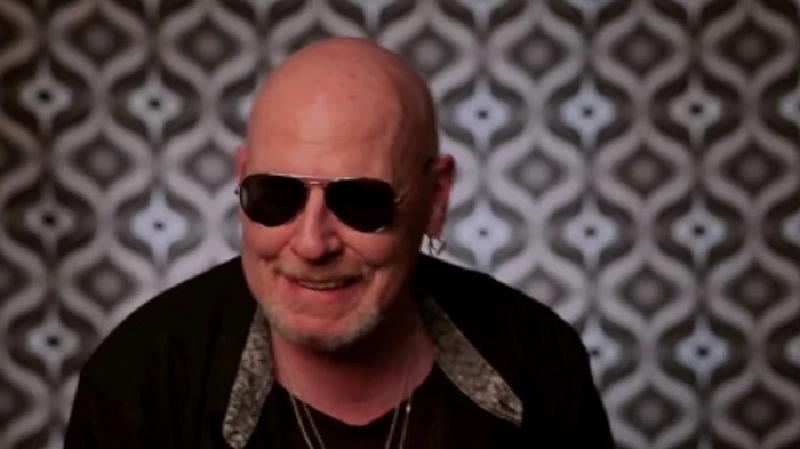
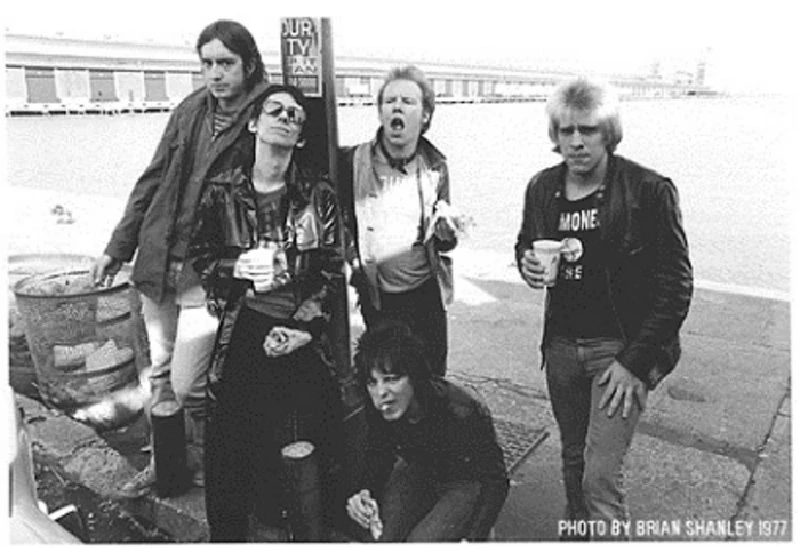
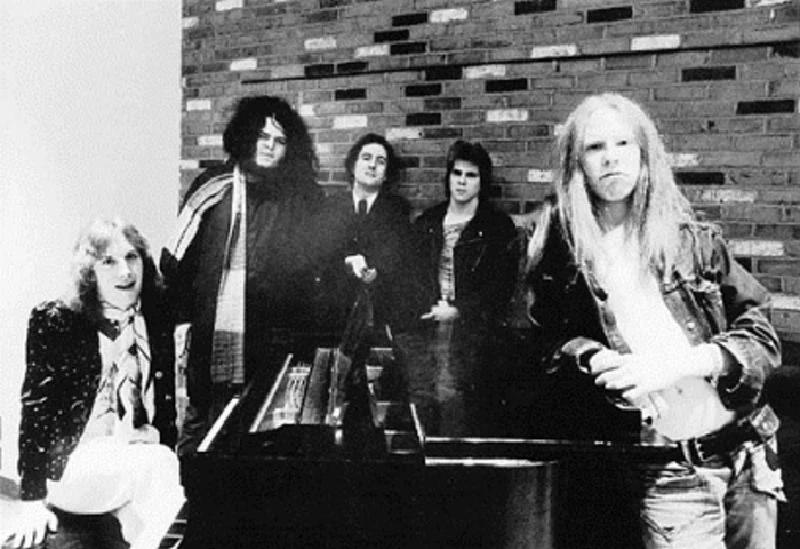
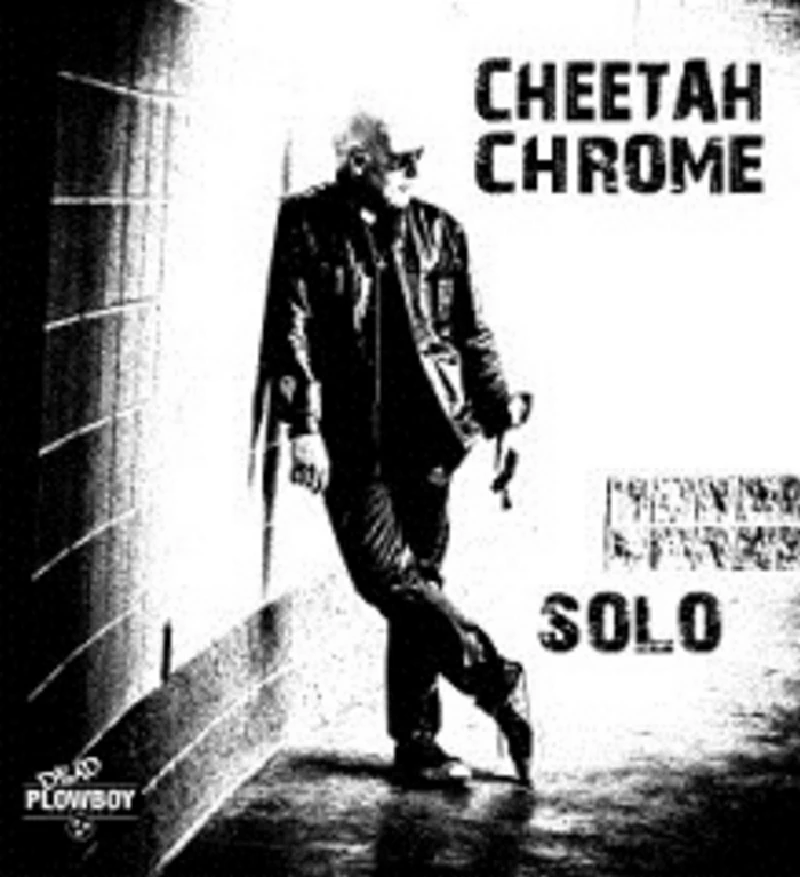
most viewed articles
current edition
Carl Ewens - David Bowie 1964 to 1982 On Track: Every Album, Every SongArmory Show - Interview with Richard Jobson
John McKay - Interview
Colin Blunstone - Thalia Hall, Chicago, 16/7/2025
Bathers - Photoscapes 1
Billie Eilish - O2 Arena, London, 10/7/2025
Loft - Interview
Visor Fest - Valencia, Spain, 26/9/2025...27/9/2025
Sir Tim Rice - Interview
Robert Forster - Interview
previous editions
Manic Street Preachers - (Gig of a Lifetime) Millennium Stadium, Cardiff, December 1999Heavenly - P.U.N.K. Girl EP
Beautiful South - Ten Songs That Made Me Love...
Peter Perrett - In Dreams Begin Responsibilities Interview Part One
Boomtown Rats - Ten Songs That Made Me Love....
Oasis - Oasis, Earl's Court, London, 1995
Coldplay - Wembley Arena. London, 16/8/2022
Prolapse - Interview
Trudie Myerscough-Harris - Interview
Pixies - Ten Songs That Made Me Love...
most viewed reviews
current edition
Davey Woodward - Mumbo in the JumboSick Man of Europe - The Sick Man of Europe
Lucy Spraggan - Other Sides of the Moon
Amy Macdonald - Is This What You've Been Waiting For?
Suzanne Vega - Flying With Angels
Blueboy - 2
Bush - I Beat Loneliness
Phew, Erika Kobayashi,, Dieter Moebius - Radium Girls
Alice Cooper - The Revenge of Alice Cooper
Cynthia Erivo - I Forgive You
Pennyblackmusic Regular Contributors
Adrian Janes
Amanda J. Window
Andrew Twambley
Anthony Dhanendran
Benjamin Howarth
Cila Warncke
Daniel Cressey
Darren Aston
Dastardly
Dave Goodwin
Denzil Watson
Dominic B. Simpson
Eoghan Lyng
Fiona Hutchings
Harry Sherriff
Helen Tipping
Jamie Rowland
John Clarkson
Julie Cruickshank
Kimberly Bright
Lisa Torem
Maarten Schiethart